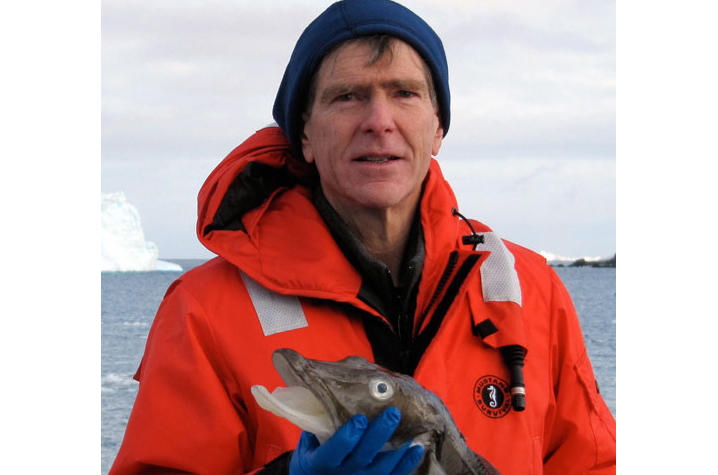Evolutionary Geneticist to Deliver Thomas Hunt Morgan Lectures

LEXINGTON, Ky. (Dec. 4, 2017) — John Postlethwait, a professor of biology from the University of Oregon, will deliver two lectures at the University of Kentucky this week as the featured speaker for the ninth annual Thomas Hunt Morgan Lecture Series. The series is sponsored by the UK College of Arts and Sciences Department of Biology.
Postlethwait will give two talks, the first a public lecture for a general audience titled "An Icefish is a Nice Fish: Antarctic Oceans and Global Climate Change" at 5 p.m. Wednesday, Dec. 6, in Room 121 of the Don & Cathy Jacobs Science Building. The second talk, a scientific lecture titled "Genetic Mechanisms of Sex Determination in Zebrafish," will take place at 4 p.m. Thursday, Dec, 7, in Room 116 of the Thomas Hunt Morgan Building. Both lectures are free and open to the public.
Postlethwait is an evolutionary geneticist focusing on animal development and sex determination. He is a member of the Institute of Neuroscience at the University of Oregon and has been a visiting professor and research scientist at several international universities, including the Austrian Academy of Sciences in Salzburg, Austria, and the Imperial Cancer Research Fund at Oxford University. He has received many awards and honors over the course of his career, most recently the George W. Beadle Award from the Genetics Society of America in 2015, and the University of Oregon Outstanding Career Award for Research Excellence in 2016.
The Thomas Hunt Morgan Lecture Series is the leading lecture hosted by the Department of Biology each year. Thomas Hunt Morgan, an alumnus of UK, rose to prominence as a renowned geneticist. Known as the "Father of Modern Genetics," Morgan won the Nobel Prize in Physiology or Medicine in 1933 for discoveries related to the role chromosomes play in heredity.




